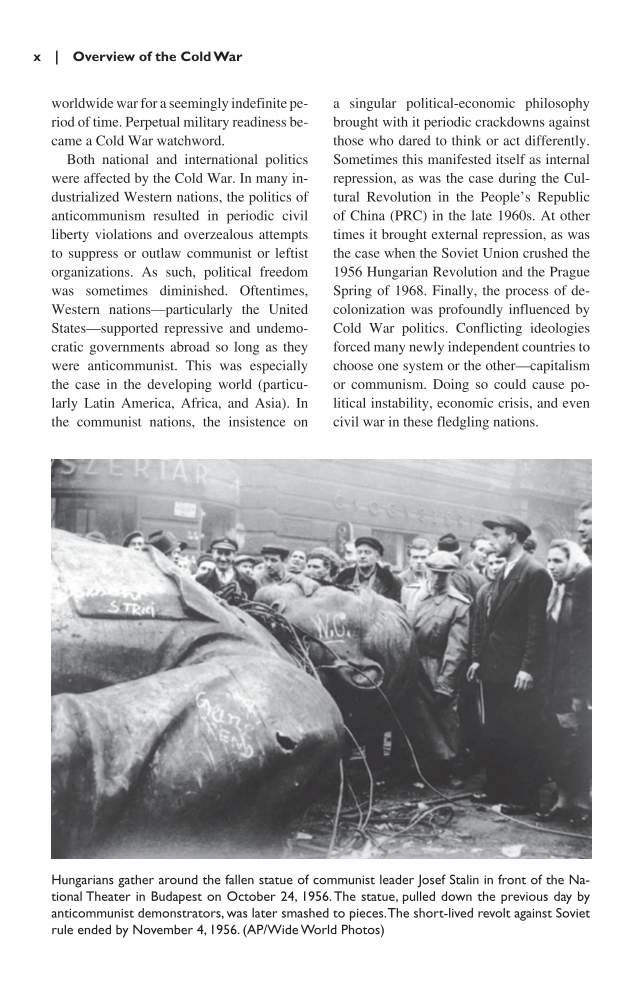x | Overview of the Cold War worldwide war for a seemingly indefinite pe- riod of time. Perpetual military readiness be- came a Cold War watchword. Both national and international politics were affected by the Cold War. In many in- dustrialized Western nations, the politics of anticommunism resulted in periodic civil liberty violations and overzealous attempts to suppress or outlaw communist or leftist organizations. As such, political freedom was sometimes diminished. Oftentimes, Western nations—particularly the United States—supported repressive and undemo- cratic governments abroad so long as they were anticommunist. This was especially the case in the developing world (particu- larly Latin America, Africa, and Asia). In the communist nations, the insistence on a singular political-economic philosophy brought with it periodic crackdowns against those who dared to think or act differently. Sometimes this manifested itself as internal repression, as was the case during the Cul- tural Revolution in the People’s Republic of China (PRC) in the late 1960s. At other times it brought external repression, as was the case when the Soviet Union crushed the 1956 Hungarian Revolution and the Prague Spring of 1968. Finally, the process of de- colonization was profoundly influenced by Cold War politics. Conflicting ideologies forced many newly independent countries to choose one system or the other—capitalism or communism. Doing so could cause po- litical instability, economic crisis, and even civil war in these fledgling nations. Hungarians gather around the fallen statue of communist leader Josef Stalin in front of the Na- tional Theater in Budapest on October 24, 1956. The statue, pulled down the previous day by anticommunist demonstrators, was later smashed to pieces. The short-lived revolt against Soviet rule ended by November 4, 1956. (AP/Wide World Photos)
Document Details My Account Print multiple pages
Print
You have printed 0 times in the last 24 hours.
Your print count will reset on at .
You may print 0 more time(s) before then.
You may print a maximum of 0 pages at a time.




























































































































































































































































































































































































































































































